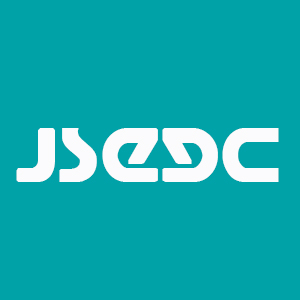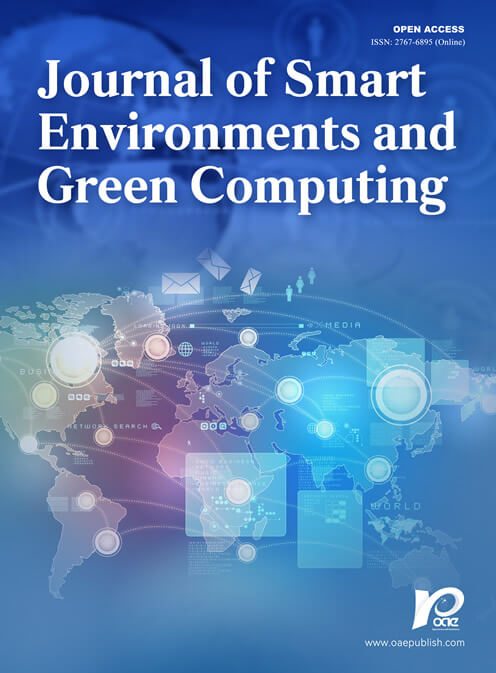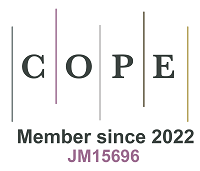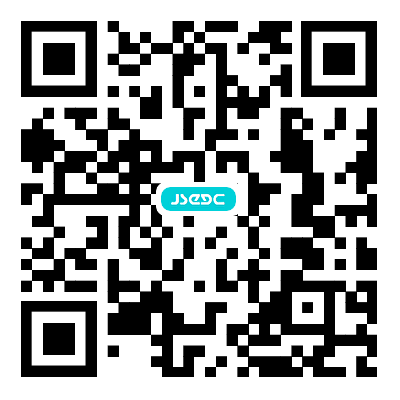REFERENCES
1. O'Leary T. Decision-making in organisations. In: William TM, Samset K, editors. Project governance: getting investments right. London: Palgrave Macmillan UK; 2012. pp. 175-200.
2. Yang MC. Consensus and single leader decision-making in teams using structured design methods. Design Studies 2010;31:345-62.
3. Zhang L, Yuan J, Gao X, Jiang D. Public transportation development decision-making under public participation: A large-scale group decision-making method based on fuzzy preference relations. Technological Forecasting and Social Change 2021;172:121020.
4. Zhang D. Methods and rules of voting and decision: A literature review. Open Journal of Social Sciences 2020;8:60-72.
6. Hwang CL, Lin MJ. Group decision making under multiple criteria: Methods and applications Berlin Heidelberg: Springer-Verlag; 1987.
7. Butler CT, Rothstein A. On conflict and consensus: A handbook on formal consensus decisionmaking. Portland, Maine: Food Not Bombs Publishing; 1987. Available from: https://theanarchistlibrary.org/library/c-t-butler-and-amy-rothstein-on-conflict-and-consensus-a-handbook-on-formal-consensus-decisionm.pdf.
8. Herrera-Viedma E, Cabrerizo FJ, Kacprzyk J, Pedrycz W. A review of soft consensus models in a fuzzy environment. Information Fusion 2014;17:4-13.
9. Liu X, Xu Y, Gong Z, Herrera F. Democratic consensus reaching process for multi-person multi-criteria large scale decision making considering participants' individual attributes and concerns. Information Fusion 2022;77:220-32.
10. Zhang H, Zhao S, Kou G, et al. An overview on feedback mechanisms with minimum adjustment or cost in consensus reaching in group decision making: Research paradigms and challenges. Information Fusion 2020;60:65-79.
11. Bordogna G, Fedrizzi M, Pasi G. A linguistic modeling of consensus in group decision making based on OWA operators. IEEE Transactions on Systems, Man, and Cybernetics - Part A: Systems and Humans 1997;27:126-33.
12. Herrera F, Herrera-Viedma E, Verdegay JL. A rational consensus model in group decision making using linguistic assessments. Fuzzy Sets and Systems 1997;88:31-49.
13. Kacprzyk J, Fedrizzi M, Nurmi H. Group decision making and consensus under fuzzy preferences and fuzzy majority. Fuzzy Sets and Systems 1992;49:21-31.
14. Cabrerizo FJ, Pérez IJ, Morente-Molinera JA, Alonso S, Herrera-Viedma E. An adaptive feedback mechanism for consensus reaching processes based on individuals' credibility. In: Proceedings of the 52nd Hawaii International Conference on System Sciences (HICSS 52). Maui, Hawaii, USA; 2019. pp. 1678-87. Available from: https://scholarspace.manoa.hawaii.edu/server/api/core/bitstreams/db7df88c-ecde-4803-b4c8-6f2b7fe6b981/content.
15. Herrera-Viedma E, Alonso S, Chiclana F, Herrera F. A consensus model for group decision making with incomplete fuzzy preference relations. IEEE Transactions on Fuzzy Systems 2007;15:863-77.
16. Mata F, Martínez L, Herrera-Viedma E. An adaptive consensus support model for group decision-making problems in a multigranular fuzzy linguistic context. IEEE Transactions on Fuzzy Systems 2009;17:279-90.
17. Pérez IJ, Cabrerizo FJ, Alonso S, Herrera-Viedma E. A new consensus model for group decision making problems with non-homogeneous experts. IEEE Transactions on Systems, Man, and Cybernetics: Systems 2014;44:494-98.
18. Taghavi A, Eslami E, Cabrerizo FJ, Herrera-Viedma E. Analyzing feedback mechanisms in group decision making problems. In: Proceedings of the 10th conference of the European Society for Fuzzy Logic and Technology (EUSFLAT 2017). Warsaw, Poland; 2017. pp. 371-82.
19. Xu Y, Li M, Cabrerizo FJ, Chiclana F, Herrera-Viedma E. Algorithms to detect and rectify multiplicative and ordinal inconsistencies of fuzzy preference relations. IEEE Transactions on Systems, Man, and Cybernetics: Systems 2021;51:3498-511.
20. Xu Y, Dai W, Huang J, Li M, Herrera-Viedma E. Some models to manage additive consistency and derive priority weights from hesitant fuzzy preference relations. Information Sciences 2022;586:450-67.
21. Xu Y, Li M, Chiclana F, Herrera-Viedma E. Multiplicative consistency ascertaining, inconsistency repairing, and weights derivation of hesitant multiplicative preference relations. IEEE Transactions on Systems, Man, and Cybernetics: Systems in press.
22. Bohra SS, Anvari-Moghaddam A, Blaabjerg F, Mohammadi-Ivatloo B. Multi-criteria planning of microgrids for rural electrification. Journal of Smart Environments and Green Computing 2021;1:120-34.
23. Liu Y, Du JL. A multi criteria decision support framework for renewable energy storage technology selection. Journal of Cleaner Production 2020;277:122183.
25. Xu ZS, Zhao N. Information fusion for intuitionistic fuzzy decision making: An overview. Information Fusion 2016;28:10-23.
26. Xu ZS. Intuitionistic preference relations and their applications in group decision making. Information Sciences 2007;177:2363-79.
28. Herrera-Viedma E, Chiclana F, Herrera F, Luque M. Some issues on consistency of fuzzy preference relations. European Journal of Operational Research 2004;154:98-109.
29. Chiclana F, Herrera-Viedma E, Alonso S, Herrera F. Cardinal consistency of reciprocal preference relations: A characterization of multiplicative transitivity. IEEE Transactions on Fuzzy Systems 2009;17:14-23.
30. Wu J, Chiclana F. Multiplicative consistency of intuitionistic reciprocal preference relations and its application to missing values estimation and consensus building. Knowledge-Based Systems 2014;71:187-200.
31. Zadeh LA. The concept of a linguistic variable and its application to approximate reasoning——I. Information Sciences 1975;8:199-249.
33. Deschrijver G, Kerre EE. On the relationship between some extensions of fuzzy set theory. Fuzzy Sets and Systems 2003;133:227-35.
34. Yang Y, Chiclana F. Consistency of 2D and 3D distances of intuitionistic fuzzy sets. Expert Systems With Applications 2012;39:8665-79.
35. Cabrerizo FJ, Trillo JR, Morente-Molinera JA, Alonso S, Herrera-Viedma E. A granular consensus model based on intuitionistic reciprocal preference relations and minimum adjustment for multi-criteria group decision making. In: Joint Proceedings of the 19th World Congress of the International Fuzzy Systems Association (IFSA), the 12th Conference of the European Society for Fuzzy Logic and Technology (EUSFLAT), and the 11th International Summer School on Aggregation Operators (AGOP). Bratislava, Slovakia; 2021. pp. 298-305.
36. Herrera F, Herrera-Viedma E, Verdegay JL. Linguistic measures based on fuzzy coincidence for reaching consensus in group decision making. International Journal of Approximate Reasoning 1997;16:309-34.
37. Wu J, Chiclana F. Aggregation of fuzzy opinions in a non-homogeneous group. Fuzzy Sets and Systems 1988;25:15-20.
38. Blanco-Mesa F, León-Castro E, Merigó JM. A bibliometric analysis of aggregation operators. Applied Soft Computing 2019;81:105488.
40. Ding RX, Palomares I, Wang X, et al. Large-scale decision-making: Characterization, taxonomy, challenges and future directions from an artificial intelligence and applications perspective. Information Fusion 2020;59:84-102.
41. Lu Y, Xu Y, Huang J, Wei J, Herrera-Viedma E. Social network clustering and consensus-based distrust behaviors management for large-scale group decision-making with incomplete hesitant fuzzy preference relations. Applied Soft Computing 2022;117:108373.
42. Lu Y, Xu Y, Herrera-Viedma E, Han Y. Consensus of large-scale group decision making in social network: the minimum cost model based on robust optimization. Information Sciences 2021;547:910-30.
43. Amgoud L, Chevaleyre Y, Maudet N. Negotiation and Persuasion among agents. In: Marquis P, Papini O, Prade H, editors. A Guided Tour of Artificial Intelligence Research. Springer, Cham; 2020. pp. 651-72.
44. Amgoud L, Vesic S. A formal analysis of the role of argumentation in negotiation dialogues. Journal of Logic and Computation 2012;22:957-78.
45. Marey O, Bentahar J, Dssouli R, Mbarki M. Measuring and analyzing agents' uncertainty in argumentation-based negotiation dialogue games. Expert Systems with Applications 2014;41:306-230.






